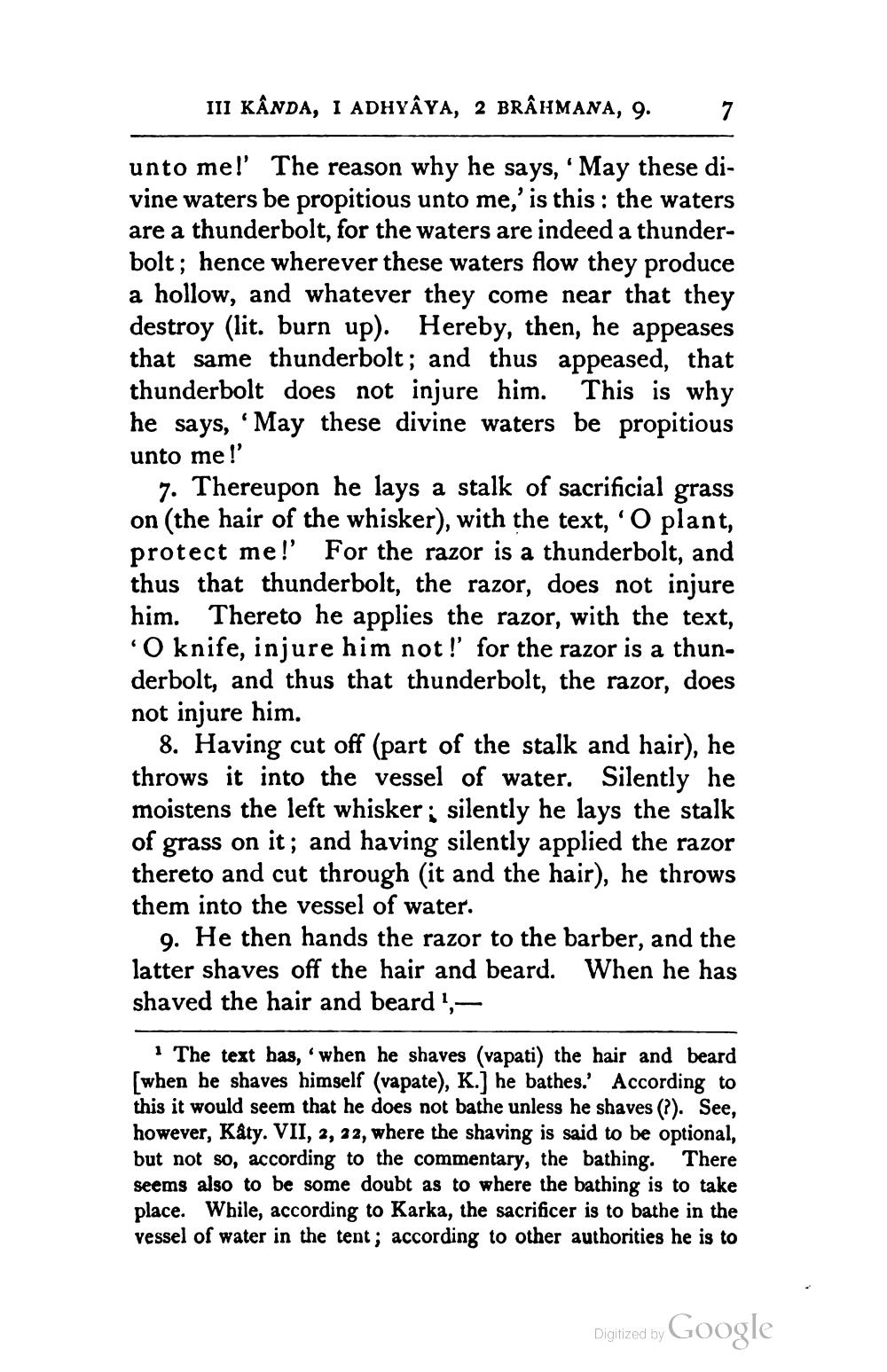________________
III KÂNDA, I ADHYÂYA, 2 BRÂHMANA, 9.
7
unto me!' The reason why he says, ' May these divine waters be propitious unto me,' is this: the waters are a thunderbolt, for the waters are indeed a thunderbolt; hence wherever these waters flow they produce a hollow, and whatever they come near that they destroy (lit. burn up). Hereby, then, he appeases that same thunderbolt; and thus appeased, that thunderbolt does not injure him. This is why he says, 'May these divine waters be propitious unto me!
7. Thereupon he lays a stalk of sacrificial grass on (the hair of the whisker), with the text, 'O plant, protect me!' For the razor is a thunderbolt, and thus that thunderbolt, the razor, does not injure him. Thereto he applies the razor, with the text,
O knife, injure him not ! for the razor is a thun. derbolt, and thus that thunderbolt, the razor, does not injure him.
8. Having cut off (part of the stalk and hair), he throws it into the vessel of water. Silently he moistens the left whisker ; silently he lays the stalk of grass on it; and having silently applied the razor thereto and cut through it and the hair), he throws them into the vessel of water.
9. He then hands the razor to the barber, and the latter shaves off the hair and beard. When he has shaved the hair and beard !,
· The text has, 'when he shaves (vapati) the hair and beard when he shaves himself (vapate), K.] he bathes. According to this it would seem that he does not bathe unless he shaves (?). See, however, Katy. VII, 2, 32, where the shaving is said to be optional, but not so, according to the commentary, the bathing. There seems also to be some doubt as to where the bathing is to take place. While, according to Karka, the sacrificer is to bathe in the vessel of water in the tent; according to other authorities he is to
Digitized by Google




